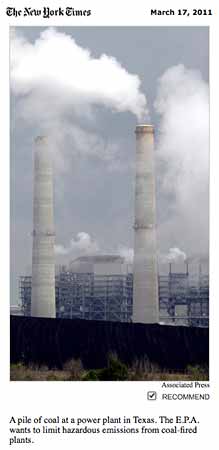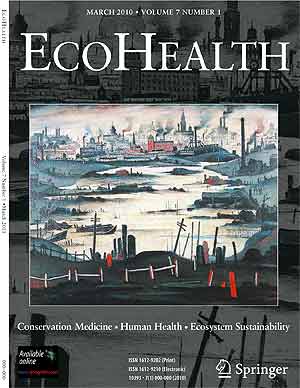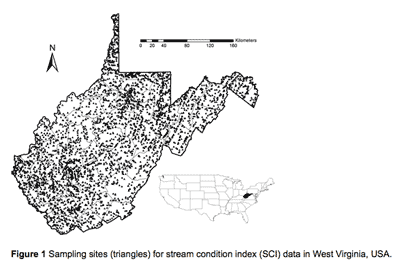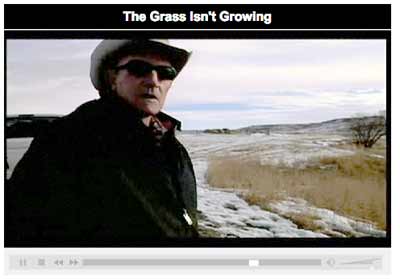Biblio
WASHINGTON — The Environmental Protection Agency on Wednesday proposed the first national standard for emissions of mercury and other pollutants from coal-burning power plants, a rule that could lead to the early closing of a number of older plants and one that is certain to be challenged by the some utilities and Republicans in Congress...
Lisa P. Jackson, the agency’s administrator, said control of dozens of poisonous substances emitted by power plants was long overdue and would prevent thousands of deaths and tens of thousands of cases of disease a year.
Ms. Jackson pointedly included the head of the American Lung Association and two prominent doctors in her announcement to make the point that the regulations were designed to protect public health and not to penalize the utility industry.
Photograph: Jonathan Ernst/Reuters
Public health advocates said utilities had delayed the rules for more than two decades with court challenges and lobbying campaigns.
“If you think it’s expensive to put a scrubber on a smokestack, you should see how much it costs to treat a child over a lifetime with a birth defect,” said Dr. O. Marion Burton, president of the American Academy of Pediatrics, who stood with Ms. Jackson in announcing the rule.
Oddly, when the story first ran, it included an account of how Ms. Jackson invited a group of second graders from a nearby elementary school to the announcement. Earlier today, Mar. 17, it was edited out. Was it Broder and Rudolf, or the Times? Are children not newsworthy?
"She invited a group of second graders from a nearby elementary school to attend the rule’s unveiling at her agency."
I found a mention of it in a cached Google listing.
Why did the Times delete it? The article as it first appears will always be located here. (PDF). The Google cache will expire as soon as you read this. See for yourself, read between the lines.
(Neil Zusman, 2011-03-17).
Insights and Commentary on Environmental and Energy Issues Worldwide.
Greenberg Traurig, LLP is an international, multidisciplinary law firm with approximately 1800 attorneys and governmental affairs professionals in 32 locations across the United States and in Europe and Asia. The firm was selected as the 2007 USA Law Firm of the Year by Chambers and Partners.
See: David Mandelbaum. December 12, 2010. "Marcellus Shale Update: NY Moratorium Bill Vetoed, NY Executive Order, DRBC Draft Regs, and DRBC Hearing Curtailed."
See: Robert Charrow and Laura Klaus of GT Washington D.C. and David Mandelbaum of GT Philadelphia. Feb 4, 2011. "AEP v. Connecticut: Climate Change as a Public Nuisance".
Democracy Now! interview with Environmentalist, 350.org Founder Bill McKibben on Eaarth: Making a Life on a Tough New Planet.
Ahead of Bolivia’s indigenous summit on climate change and the expected unveiling of a Senate climate bill next week, we speak to someone who sounded one of the earliest alarms about global warming.
Twenty years ago, environmental activist Bill McKibben wrote The End of Nature, but his warnings went largely unheeded.
Now, as people are grappling with the unavoidable effects of climate change and confronting an earth that is suddenly melting, drying, acidifying, flooding and burning in unprecedented ways, Bill McKibben is out with Eaarth: Making a Life on a Tough New Planet, a new book about what we have to do to survive this brave new world. [includes rush transcript]
See:Global Warming Frequently Asked Questions
See also: Video - 350.org: Because the world needs to know.
What's the best way to introduce the world to 350?
With over 4000 languages spoken around the world, it's probably not with a bunch of words. We did our best to boil down the science of global warming and vision of the 350 Campaign in 90 seconds--and with no words.
Our focus is on the number 350—as in parts per million CO2. If we can't get below that, scientists say, the damage we're already seeing from global warming will continue and accelerate. But 350 is more than a number—it's a symbol of where we need to head as a planet.
Our theory of change is simple: if an international grassroots movement holds our leaders accountable to the latest climate science, we can start the global transformation we so desperately need.
This fragile Earth deserves a voice. It needs solutions. It needs change. It needs you.
Dirceted by Daniel Bird.
Music and sound design by Hecq.
See: The Story of Stuff | With Annie Leonard
Tides Foundation is proud to present The Story of Stuff — a 20-minute, fast-paced, fact-filled look at the underside of our production and consumption patterns that calls us together to create a more sustainable and just world.
Narrated and created by activist Annie Leonard, the film tells an engaging story about 'all our stuff' where it comes from and where it goes when we throw it away.
Tides Foundation and The Funders Workgroup for Sustainable Production and Consumption partnered with Free Range Studios to produce the film and the website, www.storyofstuff.com
The website includes faith-based teaching guides.
See: Beach Lake United Methodist Church. "Gas Drilling Discussion (Suggested Agenda for) : Biblical and Theological Considerations".
Earthjustice Fast Facts
Did you know? We've provided legal representation at no cost to more than 700 clients, from the Natural Resources Defense Council and the Wilderness Society to community-based coalitions. Here are some more facts about us:
- Founded in 1971 as the Sierra Club Legal Defense Fund
- Name changed to Earthjustice in 1997
- Headquartered in Oakland, CA
- Number of employees: ~150
- President: Trip Van Noppen
Shell | Appalachia
The acquisition of East Resources, a Pennsylvania-based oil and gas company, on July 29, 2010, is the foundation for Shell’s new operations and growth in the Appalachian Basin. Shell’s current Marcellus Shale operations are focused in Tioga County.
On May 28, 2010, Bloomberg.com reported that Royal Dutch Shell Plc agreed to buy closely held East Resources Inc., for about $5 billion.
East Resources will no longer be a U.S. corporation.
This will be the second-biggest oil and gas deal this year, after BP Plc’s cash acquisition of deepwater assets from Devon Energy Corp. for $7 billion on March 11, according to Bloomberg data.
Private-equity firm Kohlberg Kravis Roberts & Co. invested $350 million in East Resources 11 months ago, according to the Journal.
Exxon Mobil Corp., the biggest U.S. oil company, agreed in December to buy XTO Energy Inc., the country’s largest natural gas producer, for $31 billion to gain control of shale-gas assets. Companies from India’s Reliance Industries Ltd. to Japan’s Mitsui & Co. are spending billions of dollars on drilling to dislodge natural gas from shale -- sedimentary rock composed of mud, quartz and calcite.
East Resources, Inc. is an independent exploration and development company with more than 1.25 million acres of land holdings. East Resources owns and operates more than 2,500 producing oil and gas wells in New York, Pennsylvania, West Virginia, and Colorado and is actively exploring drilling programs in Wyoming.
On July 2, 2010, ProPublica reported wastewater from a nearby East Resources gas well leaked into a field and came in contact with farm animals resulting in a state-ordered quarantine of 16 cows.
See: A Fracking First in Pennsylvania: Cattle Quarantine
"Tests performed for East Resources Inc., found hazardous chemicals and heavy metals, including chloride, barium and strontium. East did not dispute that a leak had occurred."
Reuters reported that a survey by Pennsylvania Land Trust Association, based on data from state regulators found that East Resources committed the most violations, 138, followed by Chesapeake Appalachia LLC with 118, and the privately held Chief Oil & Gas Corp. with 109.
A dissection of the Soviet Union's legacy of health and environmental disaster, this book examines a former country of 103 cities - home to 70 million people - where the air is unfit to breathe and pollution fouls 75 percent of the water.
Feshbach, Murray, and Alfred Friendly. 1992. Ecocide in the USSR: health and nature under siege. New York, NY: BasicBooks. Includes section (p.256) "The Prices of Cleanup".
Dr. Nathaniel Hitt
Assessments of ecological integrity are commonly used for conservation planning, but are they also relevant for understanding public health and disease?
In this study, Hitt and Hendryx answer this question in the affirmative, demonstrating that the ecological integrity of stream benthic macroinvertebrate communities is related to human cancer mortality in West Virginia, USA.
The authors concluded that, although the macroinvertebrate data analyzed in their study were collected to assess the quality of aquatic life, such ecological assessments offer valuable insights for public health.
See: Ken Ward Jr. April 21, 2010. The Charleston Gazette | Coal Tattoo. "New WVU-Va Tech study links water quality and cancer deaths in West Virginia coalfields".
Economic Implications of Marcellus Shale Natural Gas Development: Potential Impacts on Tourism, Agriculture, and Housing
A webinar hosted by Cornell University's Community and Regional Development Institute (CaRDI) on May 9, 2011 presented the work of a graduate student project in the Dept. of City and Regional Planning guided by Professor Susan Christopherson. Presenters: Vera Bartolome Diaz, Tom Knipe, Christopher Smith, Greg Waldman, Ethan Warsh, David West and Austin Zwick. (PDF version of the Powerpoint).
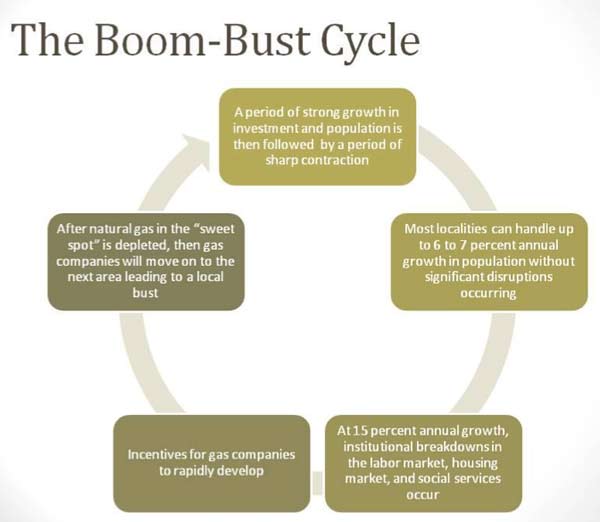
See: Christopherson to study economic impact of gas drilling in Marcellus Shale

Photo by Neil Zusman
Christopherson states that after fracking, there is no other industry. That will be all there is economically for the next ten to twenty years. Forget about agriculture, tourism, wine, tourism, and anything else besides energy. After a decade or two, or more, things might return to normal...
See: Catskill Citizens | More Damning Evidence About Fracking
eCORP is a Houston, Texas, based multifaceted energy company which, through its subsidiaries, affiliates and related entities, is engaged in the development and operation of natural gas storage facilities, natural gas pipelines, electric power plants, and other energy related facilities.
eCORP and its principals and affiliates have been involved in Stagecoach Natural Gas Storage Facility, Tioga County New York.
The U.S. Department of Energy, Energy Information Administration reported in 2007 that the largest expansion of working gas capacity (13 Bcf) occurred at the Stagecoach natural gas storage site in New York State, a depleted-reservoir facility.
Wyoming rancher Ed Swartz is feeling the affects of environmental de-regulation. Hear his story.
Ed Swartz
Gillette, WY
Added: January 18, 2009
Co-Presenting Sponsor: The Fledgling Fund supports the creation and dissemination of innovative media projects that can play critical roles in igniting social change.
The Fledgling Fund believes that film and other creative media can often demonstrate what statistics can not, can create broad understandings of social problems, and can inspire both civic dialogue and concrete action.
Cornell Daily Sun Editorial. Published: 2/16/10.
Peter Meinig, chairman of the Cornell University Board of Trustees and former associate of a large natural gas company, is at the center of many competing interests, and should not participate in any decisions the University makes regarding leasing land for natural gas drilling.
...In order to reach the most appropriate outcome for Cornell, and for the University to remain above reproach and second-guessing by the many interested parties, Meinig should recuse himself from all decisions and discussions regarding the leasing of land for natural gas drilling.
New York Times Editorial. Published: October 16, 2009.
Regulators must amend the rules to bar drilling in the New York City watershed: a million acres of forests and farmlands whose streams supply the reservoirs that send drinking water to eight million people.
Accidental leaks could threaten public health and require a filtration system the city can ill afford...“fracking” has been implicated in hundreds of cases of impaired or polluted drinking water supplies in states from Alabama to Wyoming.
New York Times Editorial. Published: November 2, 2009.
Among the many dubious provisions in the 2005 energy bill was one dubbed the Halliburton loophole, which was inserted at the behest of — you guessed it — then-Vice President Dick Cheney, a former chief executive of Halliburton.
It stripped the Environmental Protection Agency of its authority to regulate a drilling process called hydraulic fracturing. Invented by Halliburton in the 1940s, it involves injecting a mixture of water, sand and chemicals, some of them toxic, into underground rock formations to blast them open and release natural gas.
Hydraulic fracturing has been implicated in a growing number of water pollution cases across the country. It has become especially controversial in New York, where regulators are eager to clear the way for drilling in the New York City watershed, potentially imperiling the city’s water supply. Thankfully, the main company involved has now decided not to go ahead.
The safety of the nation’s water supply should not have to rely on luck or the public relations talents of the oil and gas industry. Thanks in part to two New Yorkers — Representative Maurice Hinchey and Senator Charles Schumer — Congress last week approved a bill that asks the E.P.A. to conduct a new study on the risks of hydraulic fracturing. An agency study in 2004 whitewashed the industry and was dismissed by experts as superficial and politically motivated. This time Congress is demanding “a transparent, peer-reviewed process.”
Philadelphia Enquirer editorial. Published: Mar. 22, 2010.
...Representatives of the Marcellus Shale Coalition, an industry trade group, point out that not a single case of groundwater contamination has been linked to their drilling technique, called hydraulic fracturing or "fracking."
It involves pumping up to three million gallons of water (per well), combined with sand and chemicals, more than a mile underground to shatter the rock and release the gas.
But fracking does carry potential risks to the environment. Those concerns are causing government officials elsewhere to proceed cautiously on Marcellus drilling. New York state has imposed a moratorium on Marcellus wells until it completes an environmental-impact assessment.







